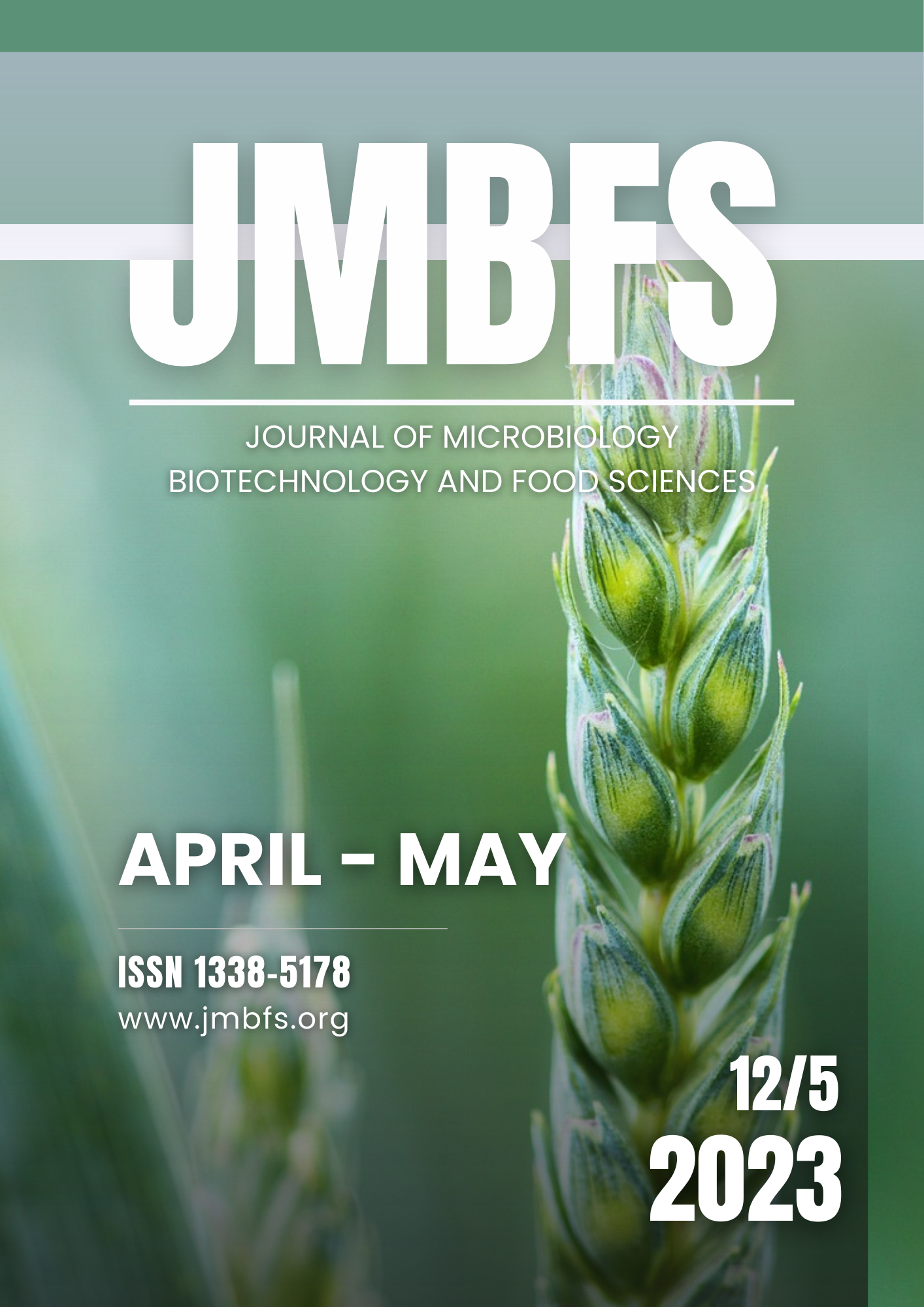ANTIMICROBIAL ACTIVITY OF METABOLITES PRODUCED BY NOVEL COAGULASE-NEGATIVE STAPHYLOCOCCI (CNS) ISOLATED FROM FERMENTED DAIRY PRODUCTS IN MALANG, INDONESIA
DOI:
https://doi.org/10.55251/jmbfs.9200Keywords:
fermentation, dairy product, coagulase-negative staphylococci, antimicrobialAbstract
Yogurt and kefir are well-known fermented dairy products that provide many benefits to human health. Microorganisms contained in yogurt and kefir play an important role to produce bioactive metabolites, including eradicating pathogens. This study presents the antimicrobial activity of 12 strains isolated from kefir and yogurt samples obtained in Malang, Indonesia. Strain K3 from kefir shows the highest antimicrobial activity with the diameter of the inhibitory zone was 8.11±0.07 mm against Escherichia coli and 8.20±0.17 mm against Staphylococcus aureus. Phenotypic characterization through Gram-staining, endospore-forming, motility, catalase, oxidase, and carbohydrate fermentation test, and genotypic identification through the 16S rRNA gene sequencing and phylogenetic analysis was performed to identify the species of isolate. Based on the result, K3 was characterized as non-motile Gram-negative bacilli bacteria, tested negative in endospore formation, catalase, and oxidase. According to the nucleotide sequence of 16S rRNA gene, the isolate was classified as Staphylococcus saprophyticus strain UTI-045 with 100% of similarity. Furthermore, the GC-MS analysis of the strain’s cell-free supernatant (CFS) reveals 3,6-Dioxa-2, 7-disilaoctane, 2,2,4,7,7-pentamethyl- (Rt=9.449 min); and Propanoic acid, 2-[(trimethylsilyl)oxy]-, trimethylsilyl ester (Rt=11.328 min) as the active metabolites.
Downloads
Downloads
Published
How to Cite
Issue
Section
License
Copyright (c) 2022 Alif Firman Firdausy, Ziyana Walidah, Kurnia Mufidah, Azizah Nurul Rahmadhany, Nofita Diyah Ningrum, Afnan Adila

This work is licensed under a Creative Commons Attribution 4.0 International License.
All papers published in the Journal of Microbiology, Biotechnology and Food Sciences are published under a CC-BY licence (CC-BY 4.0). Published materials can be shared (copy and redistribute the material in any medium or format) and adapted (remix, transform, and build upon the material for any purpose, even commercially) with specifying the author(s).





